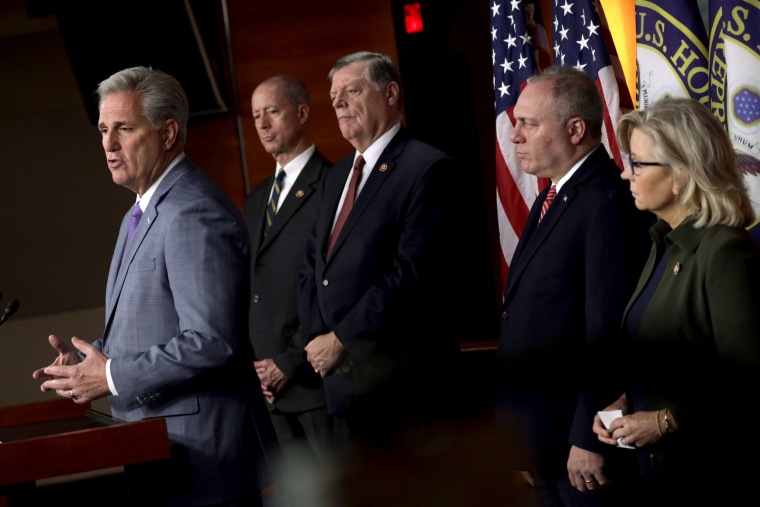In recent decades, House Republicans looking to regain power have had some success unveiling election-year policy blueprints. Ahead of the 1994 midterms, for example, GOP leaders presented voters with the "Contract with America." Ahead of the 2010 midterms, the party pitched the "Pledge to America."
Though voters' familiarity with the plans may have been limited, Republicans went from the minority to the majority in both of these election cycles.
And with this in mind, GOP leaders are giving it another try, hoping for similar results. Roll Call reported yesterday:
Less than two months before the November election, House Republicans on Tuesday revealed their agenda which aims to combat the COVID-19 pandemic, rebuild the economy and increase funding for the police. The House GOP's "Commitment to America" outlines their legislative priorities if they win the majority this fall.
To a very real extent, this is the first and only attempt the Republican Party has made to tell voters what the GOP would do with power after the 2020 elections. Donald Trump has no policy agenda -- indeed, his campaign website doesn't even have an issues page -- and for the first time since 1854, the Republican Party didn't bother to write a platform.
All of which makes the "Commitment to America" all the more significant: voters who want to know what GOP officials would do if rewarded by the electorate have this, and nothing else, to go on.
The trouble, however, is that the new Republican policy agenda appears to lack an actual policy agenda.
The full blueprint is online here (pdf) and aside from category headings, it includes 17 bulleted goals. That may seem like a lot for a party that's been indifferent toward governing for more than a decade -- you've all picked up a copy of my book, right? -- but many of the 17 points are commitments to keep doing the same thing both parties are already doing.
The GOP agenda, for example, vows to continue to fund law enforcement, fund the military, "uphold" the First Amendment, and pursue the kind of tax measures the party has long supported. Those aren't exactly surprising goals, but just as importantly, they're evidence of Republicans promising voters more of the status quo. "Vote for us and we'll keep doing what we're doing" is hardly the stuff of a meaningful policy agenda.
Similarly, the blueprint is filled with anodyne goals such as "slashing drug prices," "reducing our debt," and "investing" in education. As is always the case in governing, the details matter, and GOP officials haven't expressed any real interest in fleshing out how it might implement any of these ideas.
For the most part, the "Commitment to America" is less a policy agenda and more of a list of pleasant-sounding priorities. Republicans want to "defeat" the coronavirus, for example, with uncontroversial goals. They want to "modernize America's infrastructure," just like Democrats do. The problem is not with the priorities, but rather, with the party's capacity for pursuing these priorities in an effective way.
There are plenty of predictable elements -- GOP officials promise through the document to "defend the unborn" and subsidize private schools through vouchers -- but even here, it's simply more of the same from the party that's pushed these same lines for decades.
If House Minority Leader Kevin McCarthy (R) and the rest of the Republican leadership team hoped to prove that they're ready to be an innovative governing party, their "Commitment to America" does largely the opposite.

